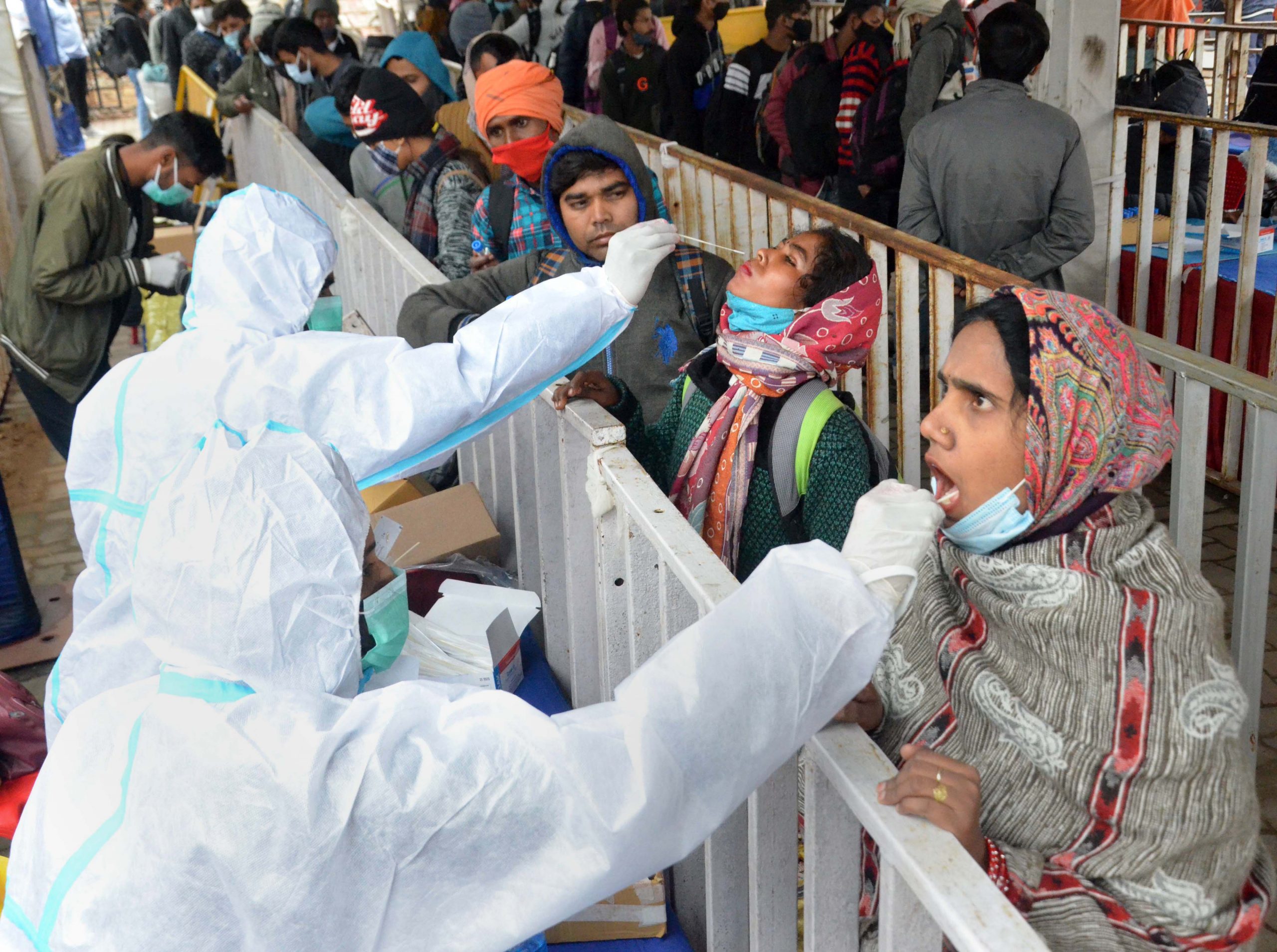India’s R-value for COVID-19 dropped between January 7 and 13 compared to the previous two weeks, a preliminary analysis by IIT Madras has revealed.
The value, recorded at 2.2 during the given week, indicates the transmissibility of the virus. A lower R-value would mean one infected person is spreading the virus to fewer people, and therefore, is good news. The value is an effective measure of estimating the COVID curve of a country and how fast the virus is spreading. If the value falls below 1, the pandemic is considered to inch towards ending.
Also Read: COVID-19 has not yet become endemic, WHO chief warns
An R-value of 2.2 is still alarming as it means 100 people are infecting 220 people. But the number has decreased from the first week of January, pointing at improvement. It was around 2.9 nationally from December 25 to December 31 and 4 between January 1 and 6, PTI reported, quoting findings from the research.
The Department of Mathematics and Centre of Excellence for Computational Mathematics and Data Science, IIT Madras, found that the R-value of Mumbai was 1.3, followed by Delhi’s 2.5, Chennai’s 2.4 and Kolkata’s 1.6
Dr Jayant Jha, an assistant professor in the department of mathematics at IIT Madras, said the R-value depends on transmissibility probability, contact rate and expected time interval in which infection can happen.
Also Read: Omicron to become dominant coronavirus variant in Americas shortly: PAHO
While the researchers have not been able to perform genome sequencing of all samples, they have speculated that this wave is largely fuelled by the highly contagious omicron variant of coronavirus.
Notably, India had reported an impressive R-value of 0.92 in September last year, soon after the second wave that wreaked havoc across the nation.
Also Read: Explained: Why are so many vaccinated people getting COVID-19 lately?
Meanwhile, the country witnessed 1,702 new cases of the omicron variant in a single day, according to the health ministry update on Sunday. This happens to be the highest in a single day as yet. There has also been an increase of 28.17% since Saturday.
(With inputs from PTI)







